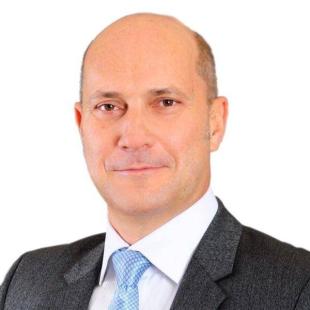Global Life Sciences & Healthcare Forum 2022 – recordings

Key contact
Uncertain times, an evolving legal framework: managing risks and ensuring social responsibility in the life sciences & healthcare sector
The risks of AI in the future of life sciences came under the microscope at a landmark legal Forum in September.
Healthcare is racing ahead in adopting new technologies across drug discovery, development, manufacturing and supply chain but experts predict a tail-whip of disputes and contract friction.
Digital transformation has the potential to improve every aspect of healthcare and the pharma industry but it also impacts data protection, IT security, contract design, liability and regulation.
The annual CMS Global Life Sciences and Healthcare Forum brought together high-level industry and legal experts to discuss sector intelligence and best practice as well as issues ranging from cyber breaches and cryptocurrency wrangles to fall-outs over trade secrets and intellectual property (IP).
“AI offers amazing opportunities to advance life sciences and usher in transformative medicine such as cell and gene therapy, improved diagnostics and analytics but it also comes with concerns as legal and contractual risks are still being understood and evaluated,” says Nick Beckett, Global Co-Head of CMS Life Sciences & Healthcare Sector Group
“Science and technology are moving forward very quickly but we are finding that the detail and strategy of what to do to mitigate risks or resolve them is lagging behind. These are critically important issues that companies need to address and the Forum examined the implications and solutions.”
AI is booming and a recent report by analysts Grand View Research forecast that the global AI in healthcare market will grow from its current value of $10.4 billion at a compound annual growth rate (CAGR) of 38.4% from 2022 to 2030. AI is fast becoming a significant element of every aspect of healthcare and legal departments and business units are being challenged to respond.
The Forum, which was held in Brussels and online on Thursday, September 29, had a packed agenda covering technology transformation, Environmental, Sustainability and Governance, supply chain disruption, regulatory frameworks and the changing commercial landscape.
The scale of challenge was evidenced in the recent CMS Technology Transformation: Managing Risks in a Changing Landscape report which revealed that 56% of corporate counsel and risk managers expect an increase in AI-related disputes, while 50% believe that the use of AI technologies will lead to risks and disputes that cannot currently be foreseen.
Disputes will be driven by issues arising from IP and trade secrets, the use of AI, smart contracts, cryptocurrencies and cloud services, they believe.
“Organisations are likely to see new types of risks and disputes emerge from the use of new technologies such as AI and cryptocurrencies. Many businesses are playing catch-up in understanding the risks associated with these new technologies,” says Lee Gluyas, Partner, CMS. “Whilst no business can eliminate risks completely, those that think ahead, plan early and actively manage risk will give themselves a substantial advantage.”
Featured keynote speakers from the United Nations Health and Development Team, general counsel from leading pharma companies, Boston Consulting Group, financial services multinational Aon and CMS sector specialists.







